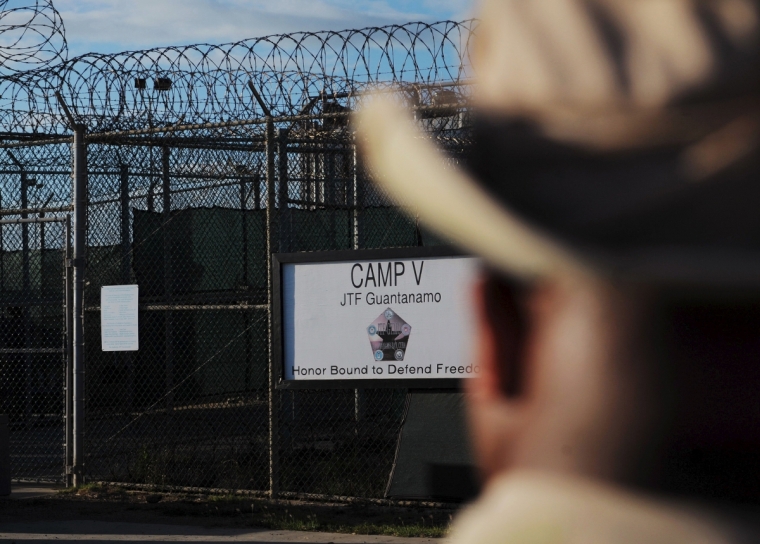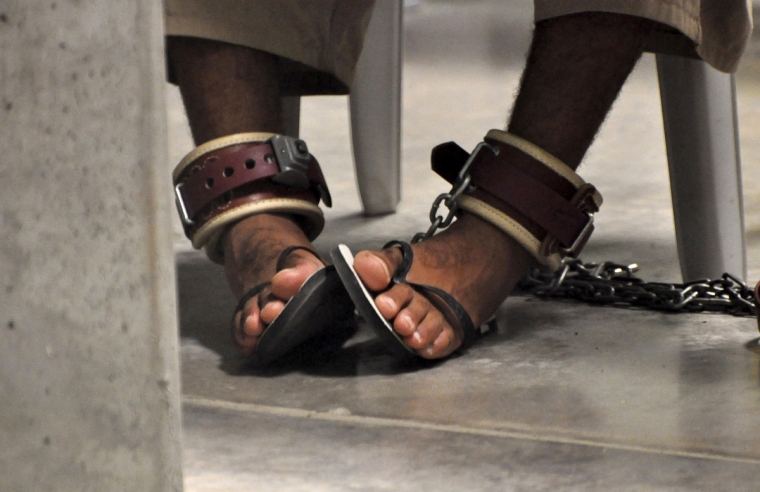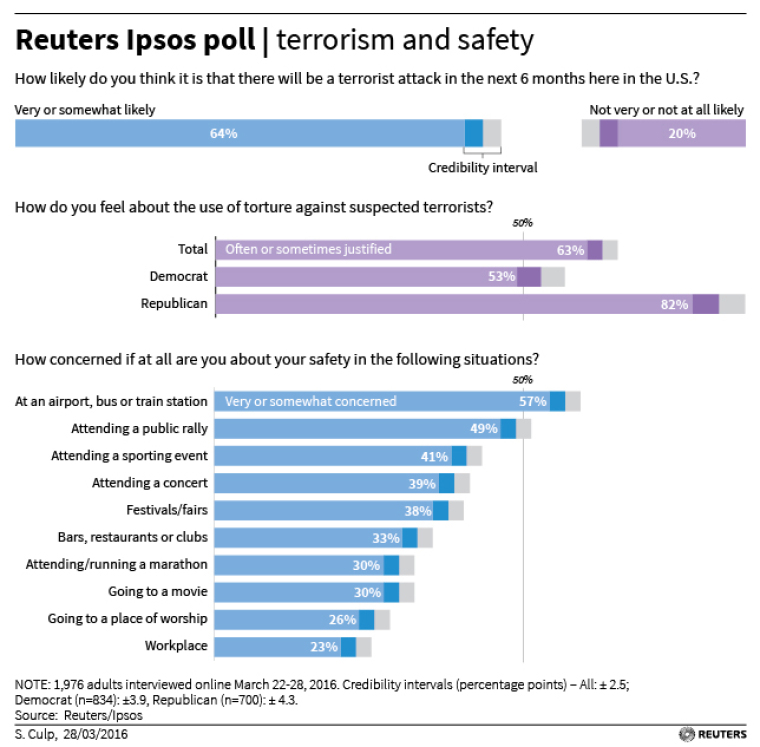Majority of Americans support torture against terror suspects, says new poll

Nearly two-thirds of Americans believe torture can be justified to extract information from suspected terrorists, according to a Reuters/Ipsos poll, a level of support similar to that seen in countries like Nigeria where militant attacks are common.
The poll reflects a U.S. public on edge after the massacre of 14 people in San Bernardino in December and large-scale attacks in Europe in recent months, including a bombing claimed by the militant group Islamic State last week that killed at least 32 people in Belgium.
Donald Trump, the front-runner for the 2016 Republican presidential nomination, has forcefully injected the issue of whether terrorism suspects should be tortured into the election campaign.
Trump has said he would seek to roll back President Barack Obama's ban on waterboarding - an interrogation technique that simulates drowning that human rights groups contend is illegal under the Geneva Conventions. Trump has also vowed to "bring back a hell of a lot worse" if elected.

Trump's stance has drawn broad criticism from human rights organizations, world bodies, and political rivals. But the poll findings suggest that many Americans are aligned with Trump on the issue, although the survey did not ask respondents to define what they consider torture.
"The public right now is coping with a host of negative emotions," said Elizabeth Zechmeister, a Vanderbilt University professor who has studied the link between terrorist threats and public opinion. "Fear, anger, general anxiety: (Trump) gives a certain credibility to these feelings," she said.
The March 22-28 online poll asked respondents if torture can be justified "against suspected terrorists to obtain information about terrorism." About 25 percent said it is "often" justified while another 38 percent it is "sometimes" justified. Only 15 percent said torture should never be used.
Republicans were more accepting of torture to elicit information than Democrats: 82 percent of Republicans said torture is "often" or "sometimes" justified, compared with 53 percent of Democrats.

About two-thirds of respondents also said they expected a terrorist attack on U.S. soil within the next six months.
TERRORISM TOP CONCERN
Surveys by other polling agencies in recent years have shown U.S. support for the use of torture at around 50 percent. A 2014 survey by Amnesty International, for example, put American support for torture at about 45 percent, compared with 64 percent in Nigeria, 66 percent in Kenya and 74 percent in India.
Nigeria is battling a seven-year-old insurgency that has displaced 2 million people and killed thousands, while al Shabaab militants have launched a series of deadly attacks in Kenya. India is fighting a years-old Maoist insurgency that has killed hundreds.
In November, terrorism replaced economy as the top concern for many Americans in Reuters/Ipsos polling, shortly after militants affiliated with the Islamic State killed 130 people in Paris.
At the same time, Trump surged in popularity among Republicans, who viewed him as the strongest candidate to deal with terrorism. Besides his advocacy of waterboarding, Trump said that he would "bomb the hell out of ISIS," using an alternative acronym for Islamic State.
"You're dealing with people who don't play by any rules. And I can't see why we would tie our hands and take away options like waterboarding," said Jo Ann Tieken, 71, a Trump supporter.
Tieken said her views had been influenced by the injuries suffered by her two step-grandsons while serving in the military four years ago in Afghanistan.
The Reuters/Ipsos poll included 1,976 people. It has a credibility interval, a measure of accuracy, of 2.5 percentage points for the entire group and about 4 percentage points for both Democrats and Republicans.
 Christians don't have to affirm transgenderism, but they can’t express that view at work: tribunal
Christians don't have to affirm transgenderism, but they can’t express that view at work: tribunal Archaeology discovery: Medieval Christian prayer beads found on Holy Island
Archaeology discovery: Medieval Christian prayer beads found on Holy Island Presbyterian Church in America votes to leave National Association of Evangelicals
Presbyterian Church in America votes to leave National Association of Evangelicals Over 50 killed in 'vile and satanic' attack at Nigerian church on Pentecost Sunday
Over 50 killed in 'vile and satanic' attack at Nigerian church on Pentecost Sunday Ukrainian Orthodox Church severs ties with Moscow over Patriarch Kirill's support for Putin's war
Ukrainian Orthodox Church severs ties with Moscow over Patriarch Kirill's support for Putin's war Islamic State kills 20 Nigerian Christians as revenge for US airstrike
Islamic State kills 20 Nigerian Christians as revenge for US airstrike Man who served 33 years in prison for murder leads inmates to Christ
Man who served 33 years in prison for murder leads inmates to Christ


 Nigerian student beaten to death, body burned over ‘blasphemous’ WhatsApp message
Nigerian student beaten to death, body burned over ‘blasphemous’ WhatsApp message 'A new low': World reacts after Hong Kong arrests 90-year-old Cardinal Joseph Zen
'A new low': World reacts after Hong Kong arrests 90-year-old Cardinal Joseph Zen Iran sentences Christian man to 10 years in prison for hosting house church worship gathering
Iran sentences Christian man to 10 years in prison for hosting house church worship gathering French Guyana: Pastor shot dead, church set on fire after meeting delegation of Evangelicals
French Guyana: Pastor shot dead, church set on fire after meeting delegation of Evangelicals ‘Talking Jesus’ report finds only 6% of UK adults identify as practicing Christians
‘Talking Jesus’ report finds only 6% of UK adults identify as practicing Christians Mission Eurasia ministry center blown up in Ukraine, hundreds of Bibles destroyed: 'God will provide'
Mission Eurasia ministry center blown up in Ukraine, hundreds of Bibles destroyed: 'God will provide' Church holds service for first time after ISIS desecrated it 8 years ago
Church holds service for first time after ISIS desecrated it 8 years ago Burger King apologizes for 'offensive campaign' using Jesus' words at the Last Supper
Burger King apologizes for 'offensive campaign' using Jesus' words at the Last Supper Uganda: Muslims abduct teacher, burn him inside mosque for praying in Christ’s name
Uganda: Muslims abduct teacher, burn him inside mosque for praying in Christ’s name